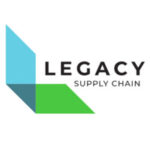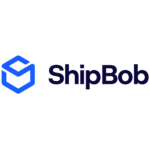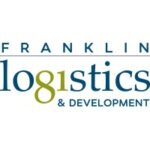Top 3PL Companies in Franklin County
Last Updated: October 2025









We will connect you with a 3PL based on requirements, and product-fit.
Request QuotesWhat Is a 3PL?
A third party logistics (3PL) provider acts as a logistics partner that handles essential supply chain functions — including transportation solutions, warehousing facility operations, e-commerce fulfillment, inventory control, and distribution management. By outsourcing these operations, companies gain access to sophisticated technology, strategic infrastructure located in key areas, and specialized logistics professionals — all without large capital investment. In Franklin County, effective 3PLs manage logistics for a diverse range of markets, spanning Pennsylvania, Tennessee, Texas, Virginia, California, Utah, Kansas, and Memphis. They are agile enough to serve both West Coast and East Coast regions, as well as national and cross-border business needs. 3PLs operate in multiple locations to support clients across these regions.
Benefits of Using a 3PL in Franklin County
Strategic Location with National Reach
Situated centrally in eastern U.S., Franklin County lies at the nexus of vital transport corridors connecting the East Coast to the Midwest and South. These corridors kickstart transportation solutions that span to California, Kansas, Tennessee, Virginia, and beyond — ensuring your products move quickly, efficiently, and cost effectively across multiple states and industries.
Scalable Warehousing & Fulfillment
Whether you’re a booming e-commerce business or an established industrial brand, Franklin County’s 3PL providers offer flexible and scalable facilities. From basic storage space to comprehensive fulfillment operations, these facilities adjust in size and scope based on your seasonal demand, new product launches, or sales events — without tying you into long-term leases.
Flexible Transportation Networks
A standout 3PL goes beyond storage and offers logistics solutions . They offer a variety of transportation solutions, including LTL/full truckload, intermodal, and expedited shipping — ideal for clients shipping across multi-state zones or those aiming to expand to Texas, California, or Virginia markets. This level of coordination enhances delivery speed and reliability.
Family-Owned Personalized Service
Many 3PLs in the county are family owned, prioritizing human relationships over tech-driven faceless systems. These providers emphasize personal attention, pride, and expertise in unwavering commitment to your success — treating your high-value brands as part of their own family. As an extension of your team, family-owned 3PLs seamlessly integrate with your operations, enhancing your brand experience and supporting your business beyond basic services.
Technology-Enabled Supply Chain Efficiency
Franklin County’s leaders in logistics integrate advanced technology, software, and data-driven systems — like WMS, real-time dashboards, and smart routing algorithms — ensuring precise inventory management, smooth transportation, and intelligent order processing.
Operational Excellence & Leadership
Experienced leadership teams — including operations managers, IT specialists, and logistics experts — drive operational excellence. Their leadership aligns core values and team actions to optimize execution efficiency , reduce errors, and support consistent success. These teams are also demonstrating their commitment to excellence through industry awards, recognition, and outstanding service performance.
What Type of Companies Use a 3PL in Franklin County
Growing Ecommerce & DTC Brands
Online-first businesses rely heavily on 3PLs for ecommerce fulfillment, stock accuracy, warehouse scalability, and fast delivery to drive growth and retain customers.
Manufacturers & Industrial Firms
For manufacturing clients, logistics providers offer inbound material handling, safe storage, re-packing, kitting, and outbound distribution to various locations for regional and national customers.
Retailers Looking to Scale
From promotional kits to frequent RESTOCK, retailers benefit from on-demand warehouse services and strategic transit to support seasonal demand and expand across state lines.
Regional Distributors
Distributors consolidating product flow across Texas, Pennsylvania, Utah, and California use 3PL networks to streamline inventory flow between facilities and across transport routes.
Startups & Mid-Size Enterprises
Family-owned or growth-stage businesses appreciate flexible pricing, no upfront capital outlay, and partnership value — gaining access to logistics infrastructure that supports scale without risk.
Things to Look for in a 3PL Provider
Scalable Operations and Agile Flexibility
Expect your provider to offer flexible solutions — both in warehouse layout and shipping options — to adapt when demand fluctuates.
Extensive Transportation Network & Carrier Partnerships
Choose a provider with established networks across key shipping regions — especially if your business spans multiple states, coast lines, or national zones.
Technology Access & Data Insight
Your 3PL should deliver dashboards, live tracking, inventory reporting, and seamless integration with your ordering system for full visibility and control.
Culture of Excellence
Look for providers whose culture centers on values like integrity, customer service, unwavering commitment, and employee development — ensuring your team is consistently supported.
Transparent, Value-Driven Pricing
Expect clear pricing models that offer flexibility as volume changes and maintain competitiveness. This transparency allows you to measure costs relative to service value.
Responsive Communication
Logistics requires constant communication and proactive updates. A provider who monitors shipments and addresses challenges quickly ensures reliability.
Community-Focused and Cooperative
Franklin County 3PLs are often locally rooted and proud to be engaged in community programs, reflecting their commitment to long-term clients, local growth, and economic development.
How to Choose the Right 3PL Provider
Define Your Goals & Metrics
Are you targeting cost savings, speed, or scalability? Identifying KPIs like delivery times, inventory turnover, and cost per order ensures you evaluate providers properly.
Visit Facilities and Meet the Team
Tours reveal the state of their warehouse, inventory systems, order-picking processes, and culture — helping you judge alignment, quality, and capacity. During your visit, verify the provider’s official business status, such as whether they are ‘inc’ (incorporated), to ensure you are dealing with a formally registered company.
Evaluate Their Technology
Request a demo of tracking systems and interfaces. Real-time access to inventory data and shipping status empowers your operations and planning.
Analyze Cost Comparisons
Ask for a complete pricing model covering warehousing, fulfillment, pallet handling, transportation, and any seasonal rates. Use this to calculate cost-per-order and ROI potential.
Evaluate Responsiveness and Service
Ask hard questions: How will they handle disputes, expedited orders, or technology issues? Their responsiveness in trials reflects long-term service quality. Look for reviews or testimonials where previous customers describe their interactions as a pleasure, as this indicates a high level of service that exceeded expectations and satisfaction.
Consider Cultural Fit
Shared core values, communication styles, and shared trust foster long-term collaboration—making logistics a true partnership rather than a vendor transaction.
Pilot and Expand
Start small — fulfillment pilot or limited SKU launch. Evaluate speed, accuracy, and partnership ease. Successful pilots show readiness for expansion.



